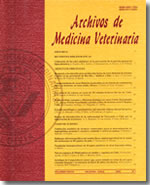Effects of commercial live transportation and preslaughter handling of Atlantic salmon on blood constituents
Main Article Content
Abstract
The effects of commercial harvest, transport in wellboat and ante mortem handling on stress related blood constituents in salmon (Salmo salar) were evaluated. Ten fish were sampled at each of six stages: on farm; after loading; after transport in wellboat; after unloading; after resting and after pumping to the processing plant. Blood concentrations of cortisol, glucose, lactate, sodium, chloride and osmolality were determined. The results of this study indicate that one of the most stressful stages was during pumping from the resting cages to the processing plant. The concentration of all variables studied dropped following a 24 hour rest in the cages and most of them, with the exception of glucose, were increased after the fish were pumped through the pipes from the resting cages to the processing plant. This confirms that the last handling procedure is the most stressful of the stages studied during this commercial transport.

